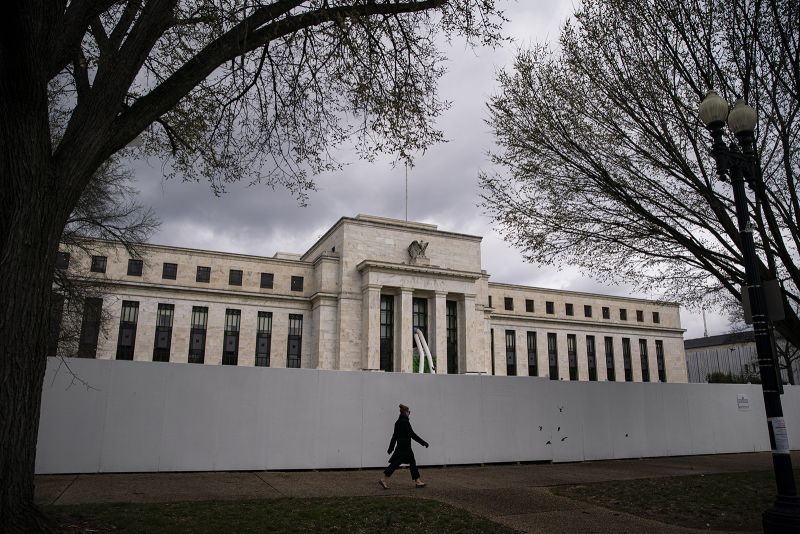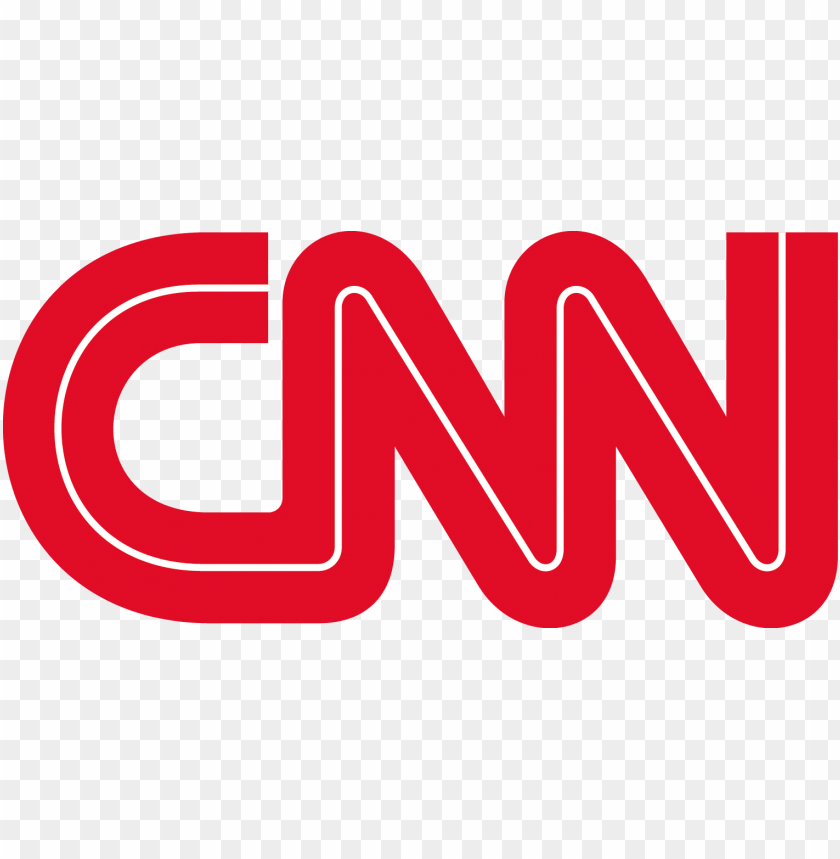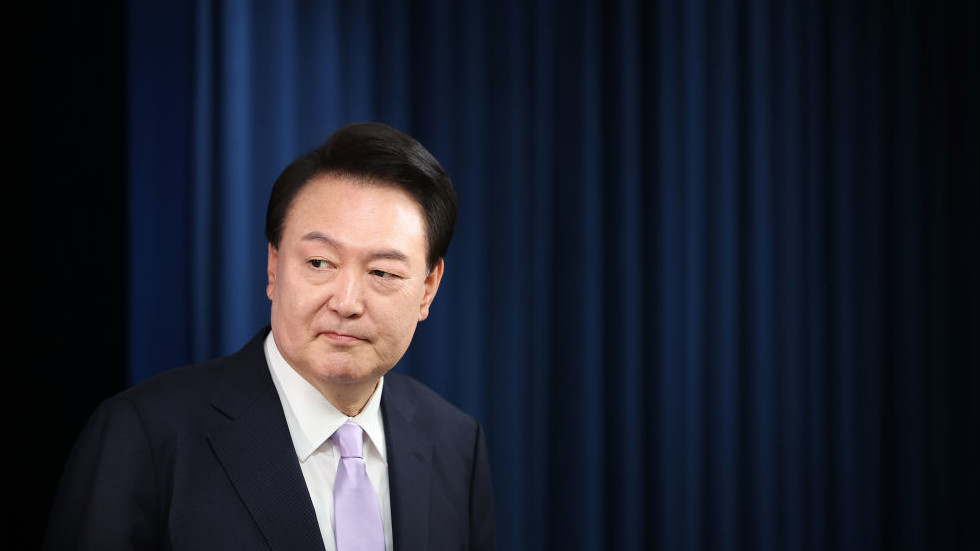Moody’s puts 6 US banks on watch for potential downgrade
From CNN's Matt Egan
Moody’s Investors Service placed six other US banks on review for potential downgrades late Monday, following last week’s collapse of Silicon Valley Bank.
The credit ratings firm also downgraded Signature Bank deep into junk territory following that bank’s failure.
Moody’s warned it could similarly downgrade First Republic Bank, Zions, Western Alliance, Comerica, UMB Financial and Intrust Financial. The firm cited the “extremely volatile funding conditions for some US banks exposed to the risk of uninsured deposit outflows.”
The move comes after shares of regional banks got clobbered on Monday even after the federal government stepped in with a massive intervention designed to prevent depositors and prevent further bank runs. Regional bank shares are rebounding in premarket trading on Tuesday.
For San Francisco-based First Republic, Moody’s pointed to the bank’s “high reliance on more confidence sensitive uninsured deposit funding,” high unrealized losses in its bond holdings and a “low level of capitalization” relative to its peers.
First Republic has a high amount of deposits above the FDIC’s insurance limit, Moody’s said, noting this makes the bank’s funding profile “more sensitive to rapid and large withdrawals from deposits.”
After plunging 62% on Monday, First Republic shares are climbing 24% in premarket trading on Tuesday.
Charting interest rates and bank collapses
From CNN's Renee Rigdon

Regulators still plan to pursue sale of Silicon Valley Bank's assets, sources say
From CNN's Phil Mattingly
Federal Deposit Insurance Corp. officials declined a bid to purchase assets from the failed Silicon Valley Bank during an auction that took place this weekend, but that doesn’t mean their efforts to secure a sale of the bank’s assets are finished, sources familiar with the matter say.
Officials who briefed Senate Republicans on the dramatic government actions taken in response to the failure of Silicon Valley Bank and Signature Bank said they were weighing plans for a second auction in the future, the sources said.
The timeline for a second auction was not clear, but the officials noted that the government action to backstop uninsured deposits, as well as the creation of a Federal Reserve-operated emergency lending facility for small and mid-sized banks, created new conditions that may make lenders more willing to submit bids to purchase the failed bank’s assets, the sources said.
Biden administration officials worked furiously throughout the weekend in an effort to find a buyer for the bank’s assets before ultimately deciding to launch the dual-pronged emergency actions.
The FDIC solicited bids from other banks to potentially purchase Silicon Valley Bank. But one senior Treasury official noted on Sunday that "things moved very quickly" and that the decision was made to "move early" and trigger the systemic risk exception — a designation that provides more leeway to immediately advance funds to those holding deposits above the current $250,000 threshold covered by FDIC.
The official noted it would have been "pretty difficult" for a potential buyer to have gone through SVB's books, agreed to purchase the assets and been in a position to open for business on Monday.
Instead, the FDIC transferred all of the bank’s deposits and assets to a government-operated “bridge bank” that opened and resumed normal banking hours and business operations.
Downfall of SVB caused by "absolutely idiotic" decisions by leadership, employee says
From CNN's Matt Egan
The blame game is on for who caused Silicon Valley Bank’s collapse, and the tech sector is pointing the finger at SVB CEO Greg Becker for allowing his company to go down in history as the second-biggest US banking failure on record.
One Silicon Valley Bank employee, who requested anonymity to speak candidly, was dumbfounded by how Becker publicly acknowledged the extent of the bank’s financial troubles before privately lining up the necessary financial support to ride out the storm.
This set the stage for the panic that ensued as customers scrambled to pull their money.
What happened: Becker and his leadership team revealed last Wednesday night a hope (but no firm commitment) to raise $2.25 billion in capital as well as $21 billion in asset sales that sparked a $1.8 billion loss.
That news set off a wave of fear across Silicon Valley, where the bank serves as a key lender to tech startups. Many of them panicked, yanking $42 billion last Thursday alone when Silicon Valley Bank’s stock crashed by 60%, according to filings by California regulators.
By the close of business that day, Silicon Valley Bank had a negative cash balance of about $958 million.
The Silicon Valley Bank insider said the mismanagement of the bank’s balance sheet heading into last week was “stupidity” and questioned the strategy of the CEO and CFO.
Still, the employee, who is a Wall Street veteran, emphasized his belief that the downfall of Silicon Valley Bank was brought on by errors and “naivety,” not outright wrongdoing.
“The saddest thing is that this place is Boy Scouts,” he said. “They made mistakes, but these are not bad people.”
Federal Reserve announces review of SVB
From CNN's Nicole Goodkind and Matt Egan
 The Marriner S. Eccles Federal Reserve building in Washington, DC, on Monday, March 13, (Al Drago/Bloomberg/Getty Images)
The Marriner S. Eccles Federal Reserve building in Washington, DC, on Monday, March 13, (Al Drago/Bloomberg/Getty Images)The Federal Reserve announced Monday it has launched a review of the supervision and regulation of Silicon Valley Bank following the lender's sudden implosion.
The Fed said the review will be run by Michael Barr, the central bank's vice chair for supervision, and the results will be publicly released by May 1.
The review comes just days after Silicon Valley Bank collapsed, raising questions about how regulators — including those at the Fed itself — missed the trouble that was brewing.
"We need to have humility, and conduct a careful and thorough review of how we supervised and regulated this firm, and what we should learn from this experience," Barr said in a statement.
Stocks close mixed after SVB failure spurs most volatile trading day of the year
From CNN's Krystal Hur
Stocks closed mixed on Monday after a volatile trading day as investors mulled over federal regulators' plan to stymie effects from the collapse of Silicon Valley Bank and Signature Bank.
Stocks teetered throughout the day as investors assessed the US government's actions and how upheaval in the banking sector will affect the Federal Reserve's monetary policy going forward.
The VIX, which measures market volatility, reached its highest level since late 2022 as shares of US regional lenders dipped in and out of trading halts Monday. Shares of Western Alliance tumbled 47%. First Republic Bank tanked about 62%. Even the larger banks were affected: Wells Fargo fell by roughly 7% and Citigroup dropped by 7.4%.
The 2-year Treasury note, meanwhile, posted its largest three-day yield drop since the Black Monday stock crash in October of 1987.
Tuesday's Consumer Price Index inflation report for February will offer more clues about inflation rates and future interest rate hikes.
The Dow fell 91 points, or 0.3% in trading on Monday.
The S&P 500 was 0.2% lower.
The Nasdaq Composite gained 0.5%.
.png)
 1 year ago
8
1 year ago
8









 English (US) ·
English (US) ·